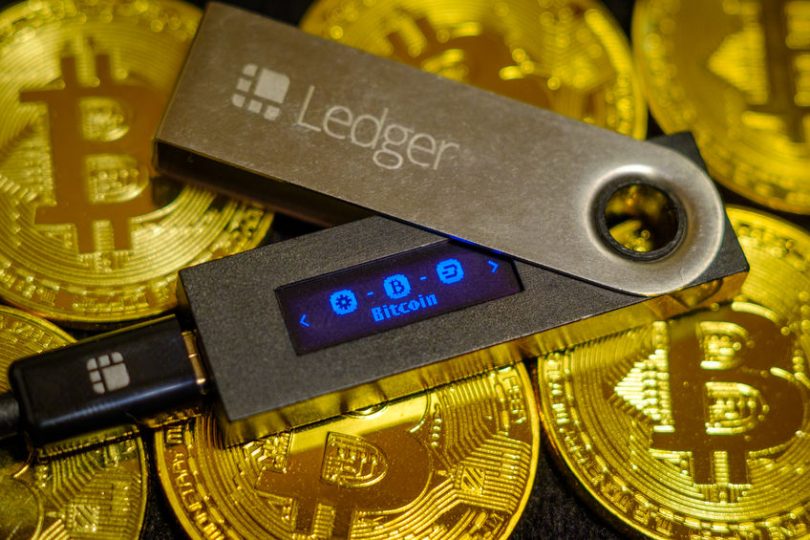
Understanding Crypto Wallets: The Key to Your Digital Assets
In the rapidly evolving world of cryptocurrency, one of the essential tools for managing and securing your digital assets is the crypto wallet. Whether you’re new to the crypto space or an experienced trader, understanding how crypto wallets work is crucial for safeguarding your investments. This article will explore the different types of crypto Ledger wallet, how they work, and the key factors to consider when choosing the right one for you.
What is a Crypto Wallet?
A crypto wallet is a digital tool that allows you to store, send, and receive cryptocurrencies such as Bitcoin, Ethereum, or other digital tokens. Think of it as a bank account for your digital money. However, unlike traditional wallets, crypto wallets don’t actually store the cryptocurrencies themselves. Instead, they store the private keys that give you access to your crypto on the blockchain.
The private key is a string of cryptographic characters that acts like a password, allowing you to unlock and manage your digital assets. Without the private key, you cannot access your cryptocurrencies. It’s important to keep your private key secure, as losing it means losing access to your crypto funds.
Types of Crypto Wallets
There are two main categories of crypto wallets: hot wallets and cold wallets. These differ in terms of how they store your private keys and their level of security.
- Hot Wallets
Hot wallets are connected to the internet, which makes them more convenient for frequent transactions. They are ideal for individuals who need quick access to their crypto assets. Hot wallets come in various forms, such as:- Software wallets: These are applications you can install on your desktop or mobile device. Examples include Trust Wallet, MetaMask, and Exodus.
- Web wallets: These wallets are accessible through your internet browser, and platforms like Coinbase and Blockchain.com offer them.
- Exchange wallets: These wallets are offered by cryptocurrency exchanges such as Binance or Kraken, allowing users to store their crypto on the exchange itself.
While hot wallets offer convenience, they are more vulnerable to cyberattacks, hacks, or malware due to their internet connectivity.
- Cold Wallets
Cold wallets are offline storage solutions that keep your private keys away from the internet, making them significantly more secure than hot wallets. Cold wallets are ideal for long-term storage and for investors who do not require frequent access to their digital assets. Cold wallets include:- Hardware wallets: These are physical devices, such as Ledger Nano S or Trezor, that store your private keys offline. To access your assets, you must connect the device to your computer or mobile device.
- Paper wallets: A paper wallet is a physical printout of your public and private keys. It is completely offline, making it resistant to online hacks, but it requires careful handling to avoid physical damage or loss.
Key Features of a Crypto Wallet
When choosing a crypto wallet, consider the following features:
- Security: This is arguably the most important factor. Look for wallets that offer strong encryption, two-factor authentication (2FA), and backup options like seed phrases (recovery phrases).
- Ease of Use: Depending on your level of expertise, choose a wallet with an interface that suits your needs. Some wallets are designed for beginners, while others offer more advanced features for seasoned traders.
- Compatibility: Ensure that the wallet supports the cryptocurrencies you plan to store. Some wallets support a wide variety of coins and tokens, while others are specific to a single blockchain (e.g., Bitcoin wallets or Ethereum wallets).
- Control Over Private Keys: If you’re using a hot wallet, make sure you have control over your private keys. This means that the wallet is non-custodial, meaning you hold the keys, not a third party.
- Backup and Recovery Options: A good wallet will offer ways to back up and recover your private keys. Seed phrases, which are typically 12-24 words, are a standard backup method.
Why Do You Need a Crypto Wallet?
A crypto wallet is essential for anyone looking to buy, sell, or hold cryptocurrency. Without a wallet, you can’t access or manage your crypto holdings. A wallet provides a secure environment for transactions and allows you to interact with blockchain-based applications like decentralized finance (DeFi) platforms or non-fungible token (NFT) marketplaces.
Moreover, wallets allow for the management of both public and private keys, ensuring that you have control over your assets. By choosing the right type of wallet, you can balance between convenience and security based on your personal needs.